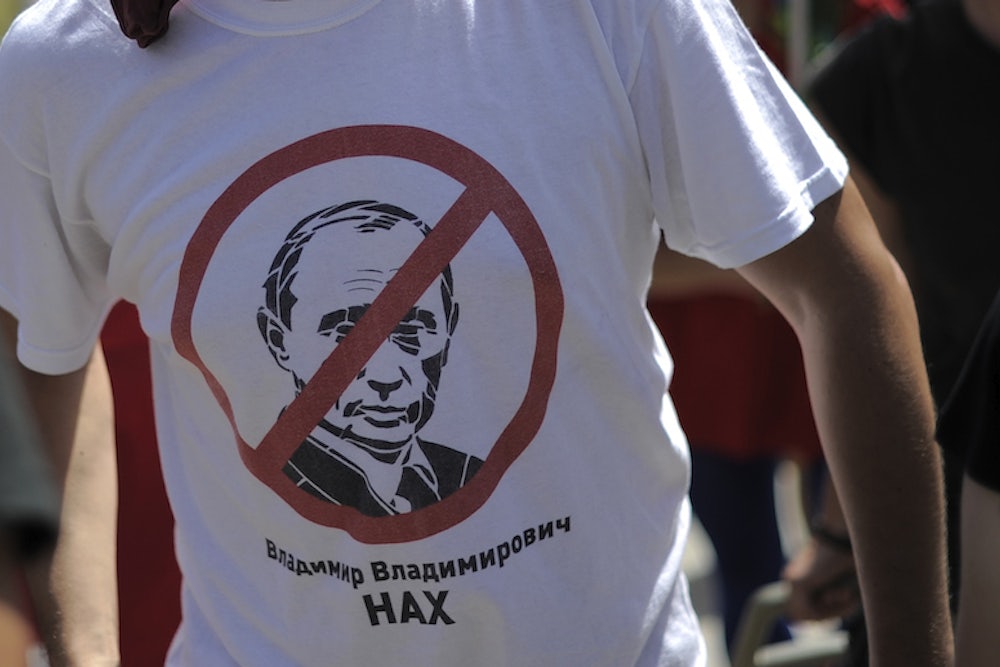Pyotr Chaadayev, a renowned Russian cultural figure, wrote: "I love my country, I wish her glory, and I can appreciate the great qualities of my people. But I did not learn to love my fatherland with my eyes shut and my head bowed down. I believe that a man can benefit his country only when he sees it clearly. I think that the time of blind love is over, and we owe our fatherland the truth. I am a stranger to that devout, lazy patriotism, which tries to see everything only in pleasant light and lets itself get lulled by its own illusions, but which, alas, now controls many of our eminent minds.”
Reading these words today, I realize their frightening relevance.
Vladimir Putin has shocked the world by his policies toward Ukraine. The Anschluss of Crimea looks like the outcome of military geopolitics modeled on the Third Reich. And this has reactivated an anti-Russian stereotype—the stereotype of a nation doomed to the status of barbarian aggressors and meek slaves.
That stereotype could hardly be more wrong or more destructive. Last year’s mass rallies in Moscow, with banners that read “Russia without Putin,” prove that Russia has more than one face. Besides the awful and repugnant face it also has a beautiful and noble one. But is Russia, by the way, unique in this regard? Hitler wasn’t Germany’s only face, and Mussolini was not the only face of Italy—though German and Italian cultures will always have a problem with this part of their inheritance.
Brutal and cruel colonialism is not the only, or the determining, aspect of English, French, and Dutch identity, even though the colonial era profoundly influenced these cultures. Likewise, Russia is not doomed to despotism at home and aggression abroad. It is no sphinx—it is a country full of conflicts and debates.
Putin has succeeded in manipulating the awareness of many Russians who’ve come to believe that Kiev is ruled by Bandera’s followers who persecute the Russian population, that Western democracies are a mortal danger to Russia, and that Poland and Lithuania train Ukrainian fascists. But there are many Russians who have not succumbed to these deceitful myths.
In 1968, seven people protested in Red Square against Russia’s intervention in Czechoslovakia. For the world, this was an argument against blind hatred toward Russians. Russophobia is senseless—and the many Russian acts of resistance against Putin’s politics attest to this today.
Every Russian democrat could repeat the words penned by the distinguished Russian, Alexander Herzen, in December 1863:
We love the Russian people and Russia, but we are not possessed by patriotic passions, by the boring madness of Russomania; and this is not because we are cosmopolitans but because our love for our country does not go as far as herd solidarity that finds excuses for crimes. This entire orgy of executioner’s feats and inebriated patriotism only shows that it is impossible to stop the domestic movement by such loathsome methods.
This “domestic movement” is the aspiration to democracy and the rule of law. The Russian people have the same right to live in the world of European values as Ukrainians or Poles. Europe and the world need an independent, democratic, and stable Ukraine. That’s the Ukraine we believe in. Let’s add, however: Europe and the world need an independent, democratic, and stable Russia—a country of great opportunities and wonderful people. Though it will probably be a Russia without Putin. The world needs Russia. Russia does not need Putin.
That’s the Russia we believe in.
